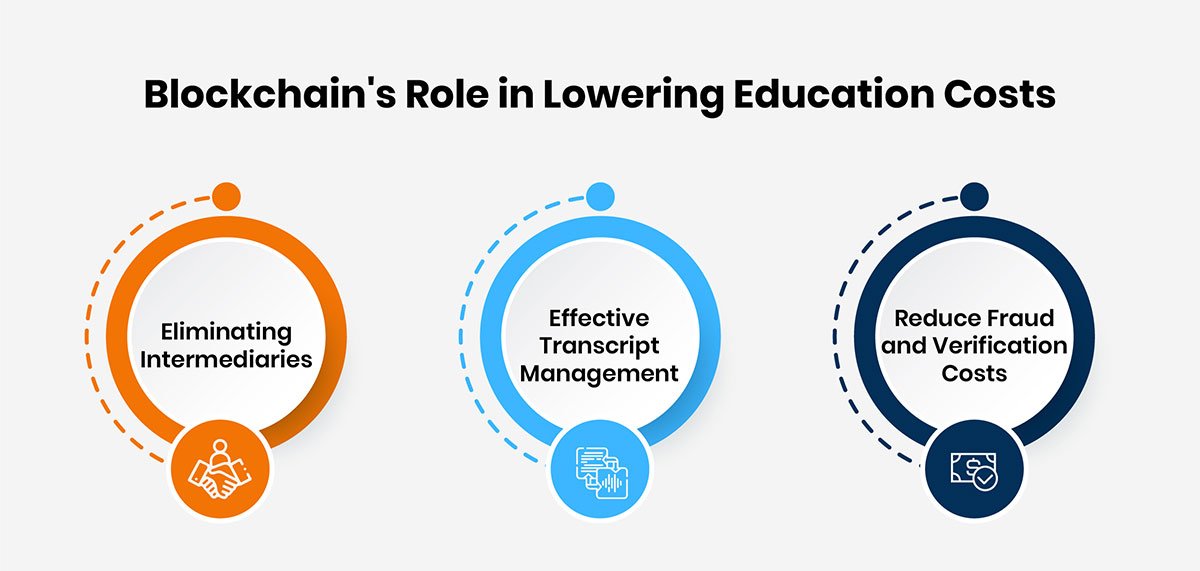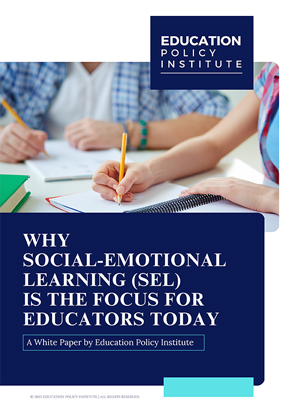In our ever-changing world, education is still essential for both professional and personal growth. One amazing tech advancement that is currently changing our lives and having a big impact on education is blockchain. Education is one of the new applications for blockchain technology, which was initially developed to support digital currencies like Bitcoin. This blog will examine how blockchain is transforming education, addressing its advantages, disadvantages, and practical uses.
Impact of Blockchain on the Education Industry
Blockchain technology is bringing about profound changes in the education sector. Here are some of the key impacts of blockchain in education:
- Increased Security: Credential fraud is considerably reduced when records are stored securely on blockchain and are only accessible with the owner's permission.
- Transparent Records: Educational records saved on the blockchain are impenetrable and maintain the veracity of a student's educational record.
- Simplified Verification: Blockchain streamlines this procedure, making it possible to quickly and securely verify academic records. Administrative burdens are minimized because it is simple for employers, educational institutions, and other pertinent parties to verify a candidate's qualifications.
- Decentralization: Since blockchain relies on a decentralized network, central authorities are no longer required to maintain and store educational data. By preventing third parties from controlling educational data, decentralization guarantees that students and institutions continue to hold ownership of that information.
Ways Blockchain Is Affecting the Education Sector
Blockchain technology is impacting the education sector in various ways, offering innovative solutions to long-standing challenges. Here are several ways in which blockchain is influencing education.
- Digital Credentials: These increasingly popular credentials give students an easy way to share their achievements with peers, potential employers, and educational institutions.
- Secure Data Management: Institutions frequently manage private student data, including grades, attendance logs, and contact details. Security breaches and identity theft are less likely thanks to blockchain's secure and private data management.
- Continuous Learning Records: With the use of blockchain in education, it is possible to combine a person's formal and informal educational accomplishments into a single lifelong learning record.
- Global Credential Verification: The global credential verification feature of blockchain facilitates the recognition and verification of credentials for international students across borders. Applying to universities or jobs abroad is made easier as a result.
Blockchain's Role in Lowering Education Costs
It is important to address the escalating costs linked to higher education. By the following methods, blockchain technology may reduce certain financial expenses:

- Eliminating Intermediaries: Blockchain can reduce administrative costs by doing away with the need for middlemen, such as third-party verification services. Students can benefit from lower tuition costs as a result of this streamlined approach's cost savings.
- Effective Transcript Management: Academic transcripts can be electronically transferred and safely stored using blockchain, which reduces the administrative costs associated with paper records.
- Reduce Fraud and Verification Costs: The security features of blockchain technology aid in the fight against fraudulent activities of education, which frequently involve further verification and legal costs.
Challenges of Using Blockchain in Education
The use of blockchain in education has great potential, but there are a few challenges that need to be addressed before it becomes common:
- Technical Difficulty: Some schools may not have the knowledge or tools to add blockchain technology to their current learning systems.
- Standardization: There are no established procedures for the issuance and verification of credentials in the education sector.
- Data Security and Privacy: Finding the ideal balance between privacy and transparency is a problem that needs to be solved.
- Infrastructure and Cost: Making the switch to blockchain technology can be expensive in terms of monetary outlay as well as the requirement for a strong IT infrastructure.
Examples of Blockchain in Education
Blockchain's educational potential is currently being investigated by numerous educational institutions.
Here are some examples:
- MIT Blockcerts: To help with the issuing, exchange, and approval of blockchain-based digital credentials, MIT developed the Blockcerts open standard.
- Holberton School: Using blockchain technology, this US coding school issues digital certificates that are simple to share with prospective employers, increasing the transparency and trustworthiness of the instruction given.
- Learning Machine and the Republic of Malta: Using blockchain technology, Learning Machine and the Malta government are creating and validating educational records and credentials. This project showcases blockchain's potential in education across international borders.
Conclusion
By improving confidentiality, openness, and efficiency in the administration of educational records and credentials, blockchain technology has the potential to completely change the education sector. Blockchain has the potential to lower educational costs and provide secure records as it develops and overcomes obstacles. Blockchain in education has shown promise from early adopters, and as more colleges and universities adopt it, technology is expected to become a vital component of the classroom setting, transforming how we learn and record what we have accomplished.





